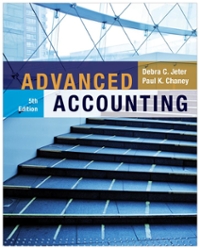Question
Problem 4 (CH6) (Applying sections 331 and 336 to Corporate Liquidating Distributions) Noah owns 100% of the stock of CAL INC (a tax C corporation).
Problem 4 (CH6) (Applying sections 331 and 336 to Corporate Liquidating Distributions)
Noah owns 100% of the stock of CAL INC (a tax C corporation). Noah has a $2 Million tax cost in
the stock. CAL INC was incorporated some years ago and capitalized by Noah (meaning Noah
funded the corporation with cash in turn for stock). Currently, CAL INC owns two assets:
appreciated raw land worth $8 Million with a $2 Million Tax Cost to CAL INC; and $2.2 Million
cash ($2,200,000) from selling additional land some time ago. CAL INC has $1 Million long term
liabilities (note attached to the land) and has no current liabilities as all paid off due to the
upcoming liquidation (detailed below). For this problem, you can assume CAL INC tax rate for any
gains equals 35%. For this problem you can assume Noahs of any gains equals 15%.
Noah and his current tax advisor have been talking about tax deal structure. Noah wishes to bring
in some partners to develop the land with a new apartment structure. The tax advisor explains the C
tax structure is not favorable going forward with new investors coming into the deal. As, Noahs
attorney has recommended the limited partnership as a legal entity and then the tax advisor has
agreed that tax partnership will work nicely for the deal. They cannot use S as it does not allow the
flexibility required for the special allocations they have planned for the deal as Noah wishes to get a
special allocation of profits as general partner for structuring the deal. [Note: class this whole
paragraph is not required to solve the problem at hand. I am just providing some background
information to make the problem more real life].
CAL INC in complete liquidation distributes the assets including the note to Noah in turn for all of
Noahs stock. And, CAL INC then cancels all of its stock and goes out of business. Note: you want
to complete the Section 336 transaction first. Then, you compute Noahs Section 331 transaction.
Question Section 336 Transaction
You can detail the computation of gain CAL INC realizes and recognizes on the amounts
distributed to Noah in complete liquidation. You then can compute the taxes CAL INC owes.
Question Section 331 Transaction
You can detail the computation of taxable gain Noah realizes and recognizes on the amounts
received on the distribution of the assets from CAL INC in turn for his stock. The note comes with
the land (Noah takes over the $1 Million loan). You then can compute the taxes Noah owes on
the distribution. Note: first, you want to evaluate what cash CAL INC has left to transfer to Noah
after paying tax on the above transfer.
Question on Tax Basis
What tax basis does Noah now have in the assets transferred to him from CAL INC?
Question on Tax Planning
We may wonder if any more favorable legal entities and corresponding tax entity may have
worked better for Noah then forming the Corporation and then defaulting to c tax corporation.
What do you suggest would have a better alternative in deal structure for holding the land at the
time Noah formed CAL INC and why?
Here, we are not saying Noah may have for sure made a mistake when he formed CAL INC as we
are only looking from the issue in hindsight. I mean we are not sure what his plans were at this late
date. Though, we are asking: given all the whole structure turned out and all the taxes Noah has to
now pay and also given that he owns 100% of CAL INC and so those taxes really represent his taxes
if we consider Noah and CAL INC as one equanimity entity:
Step by Step Solution
There are 3 Steps involved in it
Step: 1

Get Instant Access to Expert-Tailored Solutions
See step-by-step solutions with expert insights and AI powered tools for academic success
Step: 2

Step: 3

Ace Your Homework with AI
Get the answers you need in no time with our AI-driven, step-by-step assistance
Get Started


